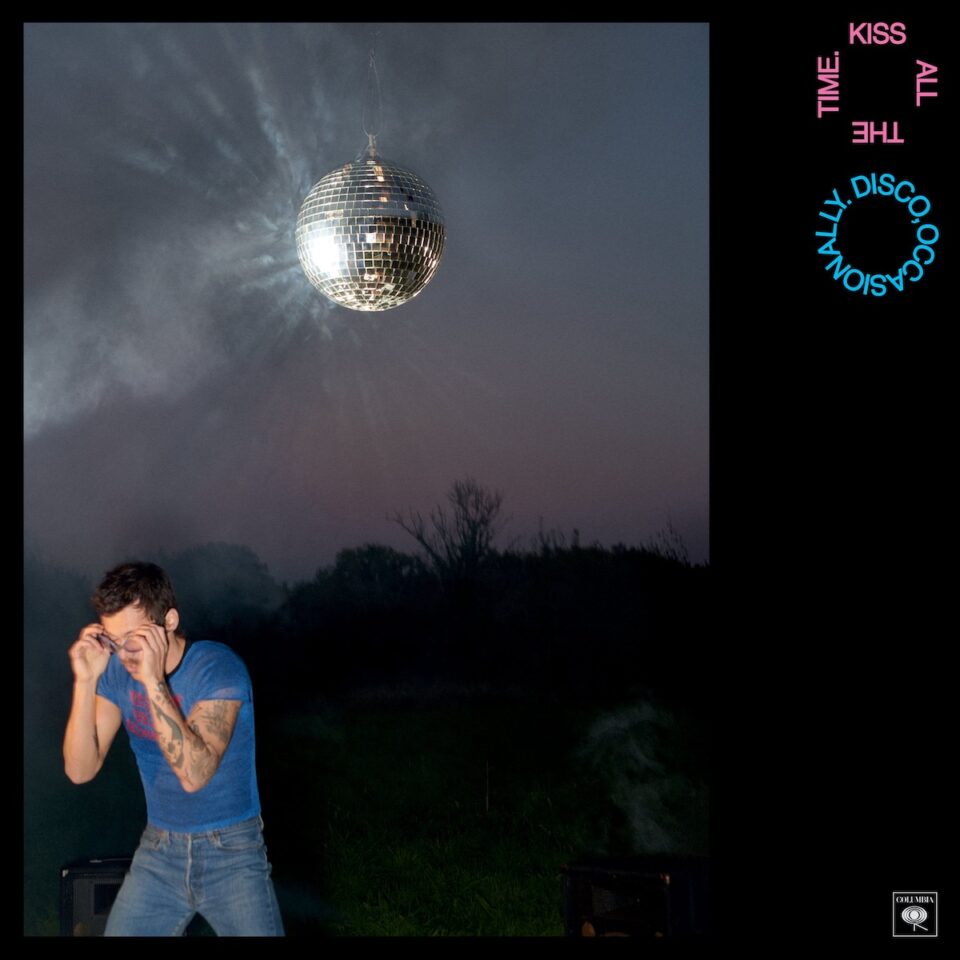On the day following the release of their sixth album, Ti Amo, Parisian quartet Phoenix could be jogging a victory lap and celebrating the end of a process that saw frontman Thomas Mars, guitarist/keyboardist Laurent Brancowitz, bassist Deck d’Arcy, and guitarist Christian Mazzalai working around the clock for the better part of three years.
Instead, Phoenix is figuring out how to perfect their new songs in a live setting. Outside the band’s trailer at a Bay Area radio station concert, the four chat, their faces not showing excitement, but rather, concentration. A few minutes later, Mars and Brancowitz depart, and Mazzalai and d’Arcy recall where they were at this point on the release schedule for Bankrupt! in 2013.
“We were headlining Coachella… So we were really focused, you know, performing with R. Kelly, who was our secret guest,” Mazzalai says. “So, again, now, we are focusing on the live [show]. Maybe it’s a way to just try to go always forward. Our little songs don’t belong to us anymore.”
The band’s new live show places Phoenix inside a kaleidoscope. The band performs atop an LED stage that is reflected off a humongous mirror hung from the rafters. What the audience sees is two views: the band from in front as well as from up above. The images that reflect off the mirror are actually reversed on the stage. Lights and lasers bounce off the mirror, the band, and the stage, creating a truly dizzying experience—one whose creation the band was personally involved with.
Ti amo means “I love you” in Italian. Per the band, Italy impacted and inspired the record. Brothers Brancowitz and Mazzalai are half Italian, and Mars and Sofia Coppola were married there. Ti Amo is about the airy early feelings of love, all dancing at discos and gelato tasting. In other words, the themes perfectly fit Phoenix’s breezy melodies.
To hear d’Arcy and Mazzalai describe the recording process, Phoenix only made the album’s ten tracks appear effortless. Pre-release reports of them having worked eight-hour days for months on end were misconstrued. It was actually longer than that.
“Every album is a big challenge,” d’Arcy says. “The challenge is to satisfy the three other members of the band that are very opinionated people, usually.”
The four argued all the time, and pleasing each other was easier said than done.
“Convincing, arguing; there’s a fine line, you know?” Mazzalai asks. “You never know which side of the line you’re on.”
Putting in long hours is not a new thing for Phoenix, and the band has a reputation for recording dozens of takes and carefully planning out each song movement. But hard work doesn’t correlate to talent for the modest d’Arcy and Mazzalai, who said they would rather be more talented and work fewer hours.
“I think the amount of work is not a quality proof,” d’Arcy says. “It’s more the opposite.”
Still, Phoenix will never complain about putting in the time because it allows all four members to keep growing as artists and discover new ways to write songs. Without the effort, Mazzalai says, their songs wouldn’t be very good.
“There are artists who don’t work [and] everything comes directly, but, there are artists who need to work, like us,” he says.
The band changes its surroundings and environment for each new album. For Ti Amo, they decamped to an old opera house in the center of Paris that was converted to an arts and creation space. It has been referred to as an incubator, but it was more of a digital arts museum.
The mood inside, with young people bustling back and forth and coming up with new ideas, was similar to Silicon Valley. The facade radiated 1800s, while the inside was transformed to a futuristic utopia, with people from various backgrounds and cultures.
“There were so many young kids trying to find the ideas of the future,” Mazzalai says. “It [was] very fun to watch them think.”
Working during the day instead of at night, like they did in the past, was the reason for much of the album’s brightness, Mazzalai says. When the proverbial whistle blows, each band member has a family to go home to.
Mars, d’Arcy, Mazzalai, Brancowitz, and co-producer Pierrick Devin had access to the entire building and were, for the most part, able to go about their business, recording on the top floor of the eight-story building, largely undetected by the workers below. Toward the end of recording, word had gotten out, and the band was on friendly terms with the other nine-to-fivers.
Phoenix also switched out all of its gear in search of inspirations. All of the instruments that went into making Bankrupt! went into storage. New instruments like Mazzalai’s prized twelve-string guitar—and new-to-the-band vintage gear—were rolled out.
Love was never meant to be such a central theme on the album. But when Mars began singing in Italian, everything else began to fall into place.
All these new inspirations were thrown into the pot, and out came an unabashedly romanticized album seemingly set in an earlier era. On the title track, Mars sings about putting the moves on a woman. “J-Boy,” which stands for “Just Because of You,” is about “love and the conquest,” as Mazzalai describes it. The other songs retain the same airy, sun-kissed and effortless feel. It’s heavily electronic and the most danceable Phoenix album in years. It accurately paints a picture of the summery discotheques about which Mars sings, or at least presents an acceptable imitation.
Love was never meant to be such a central theme on the album. But when Mars began singing in Italian, everything else began to fall into place.
“Love came to us,” Mazzalai says. “We weren’t looking for it; we were just experimenting in a freewheeling mode, and we wanted our subconscious to talk more than our actual brain… There was a cynical album before this. This one is our sexy album.” FL







